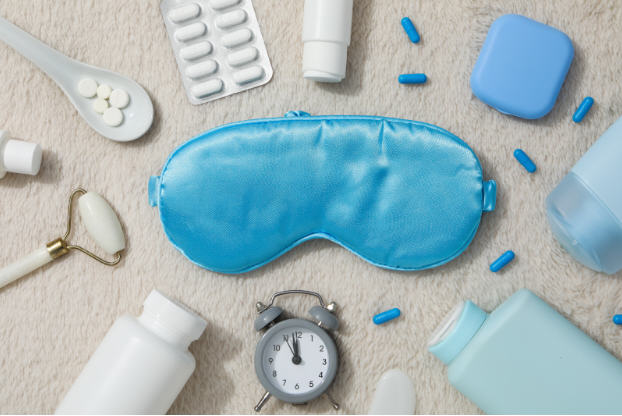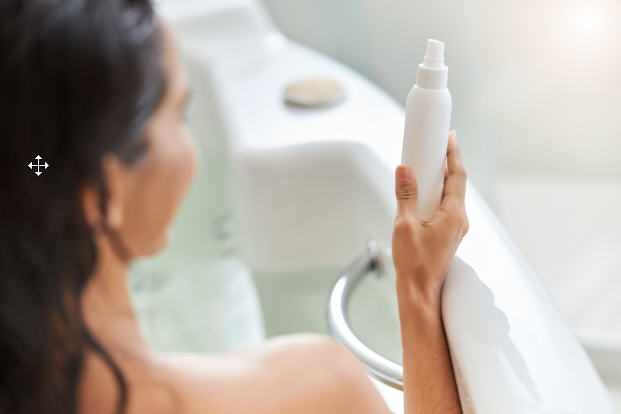


Finally, the date is set and the honeymoon is booked! It’s the perfect chance to spend time together in love, far away from daily stress. For some couples, it’s also the long-awaited moment of discovering each other in complete intimacy.
If your suitcases and travel documents are ready, are you sure you haven’t forgotten anything? A honeymoon often means love, romance, and an intense libido — but it can also mean a first sexual experience, jet lag, heat, humidity, and with it, intimate worries: personal hygiene issues, yeast infections, and contraception concerns.
To avoid any intimate inconveniences, follow Metle Metlik’s expert advice throughout your trip.

Metle Metlik’s advice: Stay calm and informed
There are so many myths about the first time that it’s time to set the record straight: a first sexual experience in a relaxed, loving atmosphere should not be painful. The hymen has very few nerve endings, and its stretching or tearing usually causes only a mild pinch — often imperceptible when arousal is present. Fear and muscle tension are what invite pain into the newlyweds’ bed.
Want to feel confident, prepared, and empowered for your first time? Join our Bridal Boot Camp Program— a complete course to help you enjoy your wedding night without stress or pain.
“We’re going to Andalusia for our honeymoon, and the forecast says 40°C in the shade! I don’t tolerate heat well — at home I always stay indoors when it’s hot. Will this constant exposure to heat affect how my birth control pill works?” — Maysoon, 34 years old
Metle Metlik’s advice: Stay vigilant
Heat doesn’t usually affect pill function, except with some third-generation pills containing a diuretic hormone. In that case, drink plenty of water to avoid dehydration — always carry a bottle and refill it often.
Some women also develop photosensitivity while on the pill, leading to skin reactions or dark spots. Use high-SPF sunscreen and avoid long, direct sun exposure.
Finally, heat and sunlight can damage your pill (and other contraceptives like vaginal rings and condoms), affecting effectiveness. Keep them cool and shaded.
“We’re going to Malaysia for our honeymoon, which is at least a five-hour time difference from Beirut. I take my pill at 10 p.m. at home — how do I manage the timing when we arrive? And what about travel day, when we leave Beirut at 4 p.m. and arrive the next day?
My gynecologist stressed taking it at a fixed time, so I’m nervous about messing it up — especially on the return.” — Dalia, 28 years old
Metle Metlik’s advice: For short time differences, keep your pill on home time and set an alarm. For larger shifts, adjust to local time on arrival — taking two pills in 24 hours once to change schedule is safe.
To avoid forgetting while on holiday, consider continuous use: with a 21-day pack, skip the 7-day break; with a 28-day pack, skip the placebos.

Metle Metlik’s advice: Always split your contraceptives between bags. Keep a strip in your carry-on and another in checked luggage. Photograph your prescription and note the active ingredient so a pharmacist anywhere can give you the equivalent.
Traveling soon? Make sure you’re protected in every time zone and climate. Our Contraception Program will teach you everything you need to know about safe, effective birth control — at home and on the go.
“Ten days in Egypt, a magical Nile cruise, 40°C heat… and then a questionable restaurant. That night I spent hours in the bathroom with diarrhea and vomiting. What happens to my pill in this case?” — Nadine, 33 years old
Metle Metlik’s advice: If you vomit within two hours of taking your pill, wait six hours before retaking it. If you miss pills in the first week, use condoms for the rest of the cycle. In the last week, start the next pack without a break.
“After years of long-distance and two years engaged, we finally had our honeymoon in Greece. The first night, we made love all night — but in the morning I found my vaginal ring in the sheets! What now?” — Arwa, 28 years old
Metle Metlik’s advice: The ring can be out for up to three hours without reducing protection. Wash it and reinsert. Always keep a spare in your toiletry bag, and consider continuous use during holidays.
Metle Metlik’s advice: Don’t overdo hygiene
It’s true that during travel, heat and sweat can make intimate odors stronger. However, this is completely normal — and overwashing or using deodorants is not the right solution. Too much hygiene weakens the mucous membranes, making them more vulnerable to infection. If the odor becomes bothersome, it could be an infection — most often a strong “fishy” smell indicates this. If accompanied by fever and/or abdominal pain, try to contact your gynecologist or see a local doctor.Metle Metlik’s advice: It’s all about hygiene
Full hair removal has been practiced in the Middle East for centuries, long before modern laser treatments. It does not inherently increase the risk of infection — but hygiene is key. The presence or absence of hair isn’t the deciding factor. Do not attempt professional waxing techniques at home — burns and irritation are real risks. If you choose laser hair removal, consult a doctor; if waxing, visit a salon before you travel.
Metle Metlik’s advice: Rinsing is enough
It’s important to eliminate germs after sex, but a full wash with soap every time is not necessary. Always urinate after sex, as the urine stream naturally flushes bacteria. For washing, clear water is more than enough.Metle Metlik’s advice: Pack lubricant and antifungal treatments
Sweat, wet swimsuits, chlorine, and salt can irritate the mucosa and increase the risk of yeast infections. Pack an antifungal kit: soothing soap, cream, or vaginal ovules. To avoid irritation during sex, bring a water-based lubricant — it’s the only type safe for genital mucosa and compatible with condoms. Never use oily substances like petroleum jelly, which can damage latex.Metle Metlik’s advice: Your body is self-cleaning
Vaginal discharge is normal and essential. It flows along the vaginal walls, cleaning by removing germs and dead skin cells. The amount can increase due to hormonal changes, heat, physical activity, or humidity. Only be concerned if the discharge changes drastically in appearance, becomes greenish, or develops a foul odor.Metle Metlik’s advice: Don’t panic
Light, intermittent bleeding (spotting) is uncomfortable but not dangerous. It can occur with certain birth control pills or due to mild hormonal changes during travel. If the spotting is bothersome and you don’t have any medical reason to avoid anti-inflammatory medication, you can take ibuprofen (200 mg twice daily for up to four days) to help reduce the bleeding. This is a short-term comfort measure — if the bleeding becomes heavy or continues after your return, speak to your gynecologist.
“Every time I travel, I get cystitis — burning urination, discomfort — and it ruins the trip. This time, I want to prevent it. I don’t want to avoid sex for fear of infection. ” — Dareen, 32 years old
Metle Metlik’s advice: Hydrate and empty your bladder regularly
Dehydration, wet swimsuits, and more frequent sex make honeymoons prime time for urinary tract infections. They’re usually mild but very bothersome.
Want to master every aspect of sexual pleasure, intimacy, and communication? Enroll in our Sexuality 101 Program — your complete guide to building a satisfying and confident intimate life.



Enter your email address